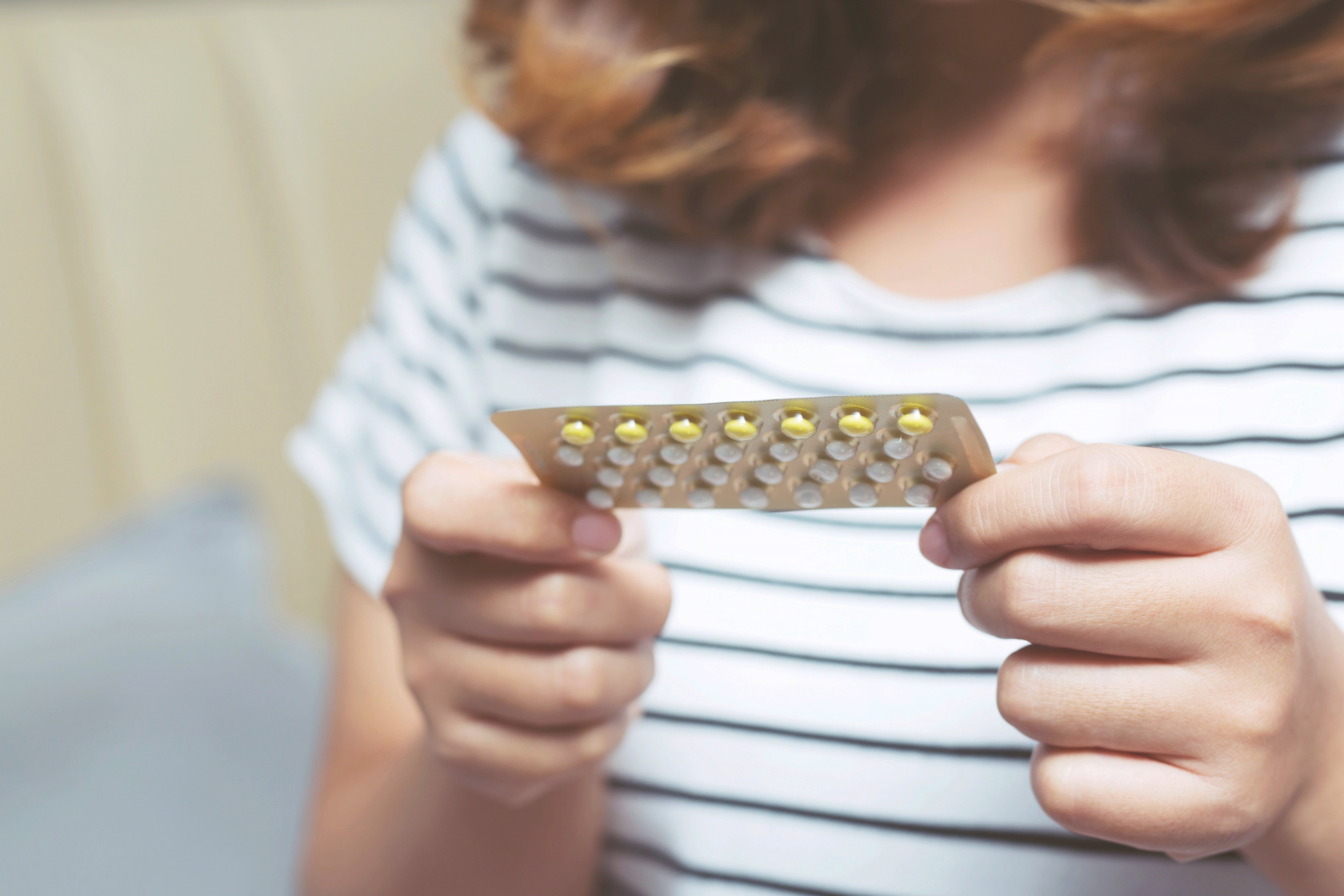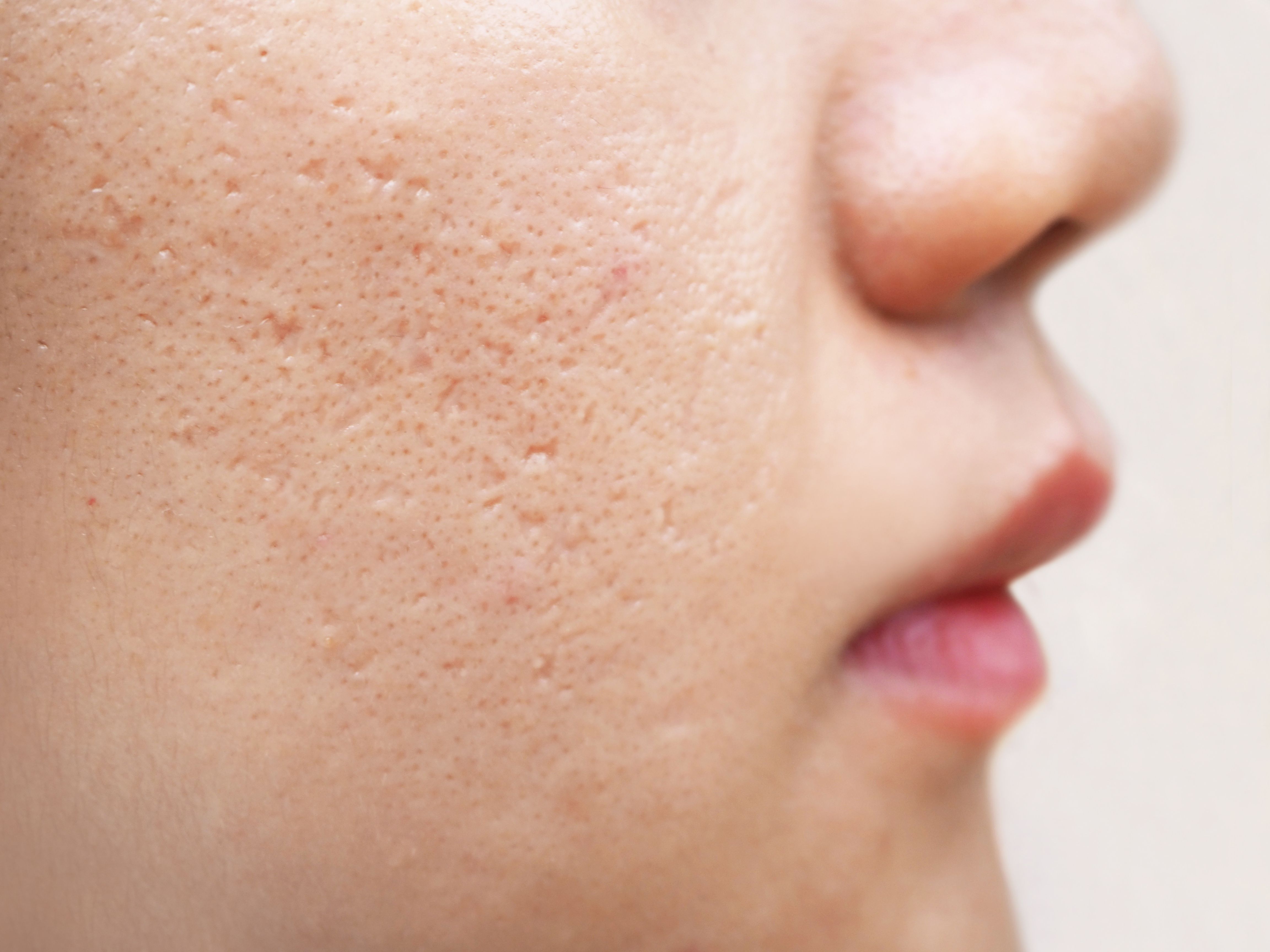- Case-Based Roundtable
- General Dermatology
- Eczema
- Chronic Hand Eczema
- Alopecia
- Aesthetics
- Vitiligo
- COVID-19
- Actinic Keratosis
- Precision Medicine and Biologics
- Rare Disease
- Wound Care
- Rosacea
- Psoriasis
- Psoriatic Arthritis
- Atopic Dermatitis
- Melasma
- NP and PA
- Skin Cancer
- Hidradenitis Suppurativa
- Drug Watch
- Pigmentary Disorders
- Acne
- Pediatric Dermatology
- Practice Management
- Prurigo Nodularis
- Buy-and-Bill
Article
Hormonal therapies for women with acne
Author(s):
Oral contraceptive pills and antiandrogen therapies may rival antibiotics for women with acne, according to research presented by Rachel V. Reynolds, M.D. at AAD earlier this month.
The FDA has approved three oral contraceptive pills for acne treatment, but studies suggest there is no one superior oral contraceptive among the three approved to treat acne, according to Dr. Reynolds. (methaphum - stock.adobe.com)

Rachel V. Reynolds, M.D.

Hormonal therapies are helping to broaden therapeutic options for women with acne as dermatologists look for alternatives to antibiotic treatment. Studies suggest oral contraceptive pills and antiandrogen therapies might rival antibiotics in acne treatment efficacy, according to Rachel V. Reynolds, M.D., assistant professor of dermatology at Harvard Medical School and vice chair Dermatology Beth Israel Deaconess.
Dr. Reynolds spoke about hormonal treatments for acne as part of the Acne Treatment Controversies panel during the March 2019 American Academy of Dermatology annual meeting in Washington D.C.
Data suggests dermatologists are increasingly using spironolactone to treat acne, Dr. Reynolds says. Among patients who saw a dermatologist, the number of courses of spironolactone prescribed for every 100 female patients with acne rose from 2.08 to 8.13 from 2004 to 2013 - a 291% increase in use, according to a study by John D. Barbieri, M.D., M.B.A. et al published in September 2017 in the Journal of the American Academy of Dermatology (JAAD).
Spironolactone treatment for acne is generally considered safe for healthy women, according to AAD.com patient information on hormonal therapies.
A 4-year retrospective study by University of Cincinnati researchers published October 2017 in Dermatology evaluated 291.5 patient-years of spironolactone for acne treatment and found 86% of patients on spironolactone therapy improved with minimal side effects.
In the study, “Frequency of Treatment Switching for Spironolactone Compared to Oral Tetracycline-Class Antibiotics for Women With Acne: A Retrospective Cohort Study 2010-2016” published last year in the Journal of Drugs in Dermatology, Barbieri et al reported that spironolactone may have similar clinical effectiveness in the treatment of women with acne to that of oral tetracycline-class antibiotics.
There is also ample randomized controlled trial evidence to support the effectiveness of birth control pills for the treatment of acne, according to Dr. Reynolds.
“But one study looking at this shows that there has been a relative plateau in prescribing by dermatologists,” Dr. Reynolds says.
Barbieri and colleagues report in the JAAD analysis that the number of courses of combined oral contraceptives U.S. dermatologists prescribed per 100 female patients with acne decreased from 34.31 to 30.74 from 2004 to 2013. Dr. Reynolds says, however, those numbers might not reflect dermatologists who encourage their acne patients to go on oral contraceptives, but refer patients to their primary care doctors for the prescriptions.
TREATING ACNE WITH HORMONAL THERAPIES
Female acne patients who have failed topical therapy or have relapsed after isotretinoin are good candidates for hormonal therapy, according to Dr. Reynolds. That’s especially if they have an inflammatory component to their acne and notice signs of premenstrual flares associated with their acne, she says.
“Essentially any adult female with acne has potential to respond to these therapies, even in the absence of other clinical hormonal associations,” Dr. Reynolds says.
The FDA has approved three oral contraceptive pills for acne treatment: Ortho Tri-Cyclen (norgestimate/ethinyl estradiol, Janssen Pharmaceuticals); Estrostep (ethinyl estradiol and norethindrone, Allergan); and Yaz (drospirenone/ethinyl estradiol, Bayer).
Studies suggest there is no one superior oral contraceptive among the three approved to treat acne, according to Dr. Reynolds.
“But I personally lean toward Yaz, which contains drospirenone. It has androgen receptor blocking activity in addition to having the antiandrogen benefit of the estrogen component,” she says.
Best practices for using hormonal therapy for acne include using antiandrogen medications, like spironolactone, along with a birth control pill, when possible. This helps to regulate menses, which can become irregular on spironolactone, according to Dr. Reynolds.
“And it’s a teratogen so that’s another good reason to have a patient on birth control pills simultaneously when you can,” she says. “I also often use these hormonal therapies in conjunction with topical retinoids or, sometimes, with a topical antibiotic combined with benzoyl peroxide.”
There are contraindications for using birth control pills, including patients with a personal or family history of blood clotting, such as deep venous thrombosis or pulmonary embolism. Pregnancy is a contraindication, as are hypertension, obesity and smoking in women over 35. Women who are breast feeding or have migraine headaches with aura should not take oral contraceptives for acne. And women with migraines without aura who are older than 35 should not take them.
Hormonal options in the pipeline for acne treatment include investigational topical antiandrogen therapy, notes Dr. Reynolds.
Disclosures: None related to this story
Newsletter
Like what you’re reading? Subscribe to Dermatology Times for weekly updates on therapies, innovations, and real-world practice tips.





